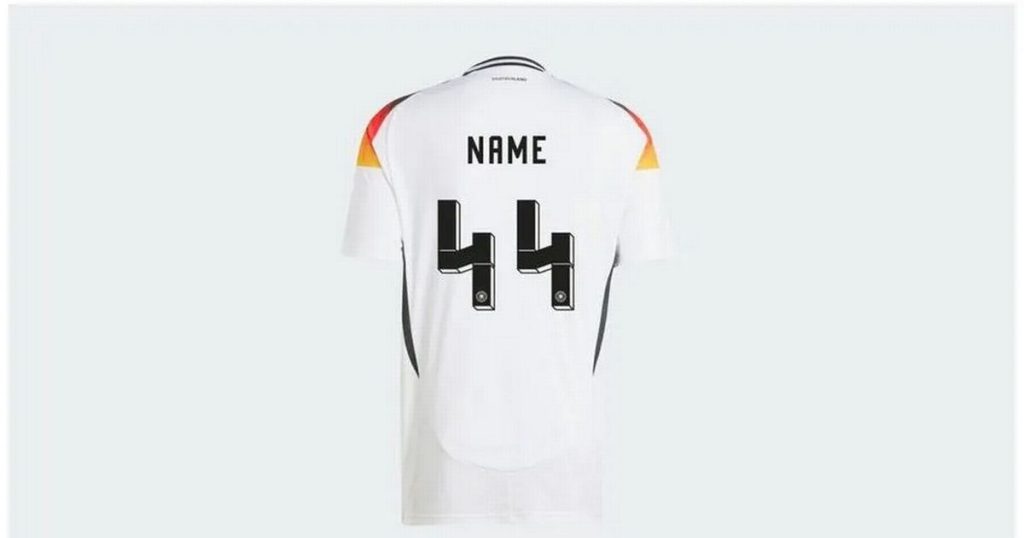Germany’s kit for the upcoming European Championships, where they are host nation, has been the subject of controversy due to the design of the number 44 on the shirts. There were concerns over unintended Nazi symbolism, as the number bore a resemblance to the logo of the SS, the arm of the Nazi party responsible for administering death camps during World War II. As a result, manufacturers adidas decided to prevent football fans from purchasing Germany’s Euro 2024 kits with the number 44, despite insisting that the similarities were unintentional. The German FA (DFB) stated that neither they nor UEFA saw any proximity to Nazi symbolism during the development process of the jersey design, but they took the concerns seriously and decided to develop an alternative design for the number 4 in coordination with UEFA.
Unlike most club shirts, international shirts for major tournaments often carry numbers on the front as well as the back. While the Euro 2024 squads will wear numbers 1-23, personalized shirts with names and numbers have traditionally been allowed. However, adidas announced that they would block personalization of the jerseys due to the controversy surrounding the number 44. The adidas spokesman emphasized the company’s commitment to opposing xenophobia, anti-Semitism, violence, and hatred in every form. The new Germany kit released by adidas was described as embodying the spirit of German football, with design elements inspired by the country’s football history, such as the four-time World Champions’ emblematic eagle feather motif and details from the DFB logo.
Germany, as hosts of the upcoming Euros, is aiming to perform well after disappointing exits from recent tournaments. They were eliminated in the group stage of the 2018 and 2022 World Cups, as well as being knocked out by England in the round of 16 at Euro 2020. Julian Nagelsmann took over as manager in 2023, succeeding Hansi Flick, and oversaw two wins in warm-up games during the international break in March. The victories against France and the Netherlands provided a boost to the team’s morale, with Nagelsmann expressing satisfaction with the team’s performance. He emphasized the importance of maintaining a positive team spirit as they prepare for the Euros, aiming for a successful tournament campaign to redeem recent disappointments.
The decision by adidas to take action on the Germany shirt controversy has sparked discussions among fans and the public, with differing opinions on whether the right course of action was taken. While some believe that addressing the concerns and preventing the sale of jerseys with potential offensive symbolism was the correct choice, others argue that the issue was blown out of proportion and could have been resolved differently. The incident highlights the sensitivity surrounding historical symbols and the importance of respecting historical contexts, especially in the design and representation of sporting apparel for national teams participating in major tournaments.
With the Euro 2024 tournament approaching, Germany’s focus is on preparing the team and building a competitive squad under new management. The recent wins in warm-up matches have provided optimism and a sense of momentum as they head into the tournament as hosts. The team will be looking to put past disappointments behind them and deliver a strong performance for their fans and the country. As they navigate the challenges and expectations of hosting a major tournament, Germany aims to showcase the best of German football and make a mark on the European stage. The controversy surrounding the kit design serves as a reminder of the importance of cultural sensitivity and historical awareness in the world of sports, where symbols and representations can carry powerful meanings and implications.


